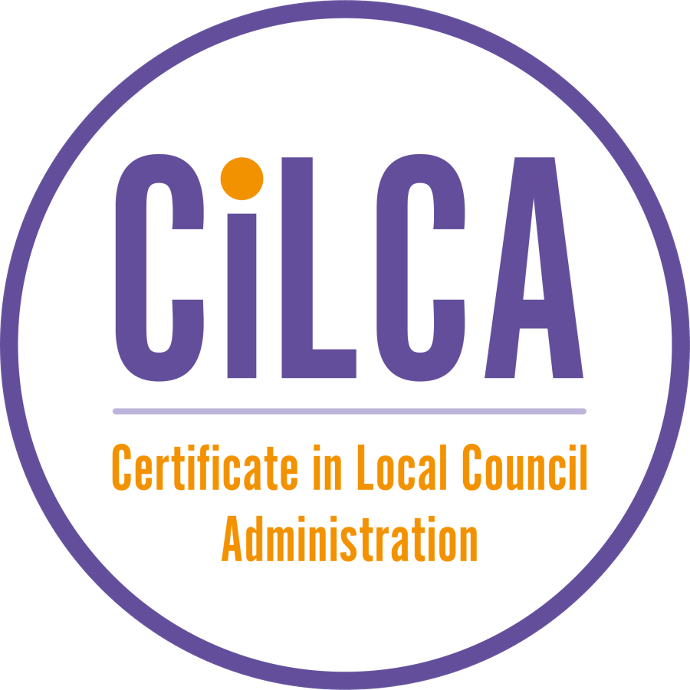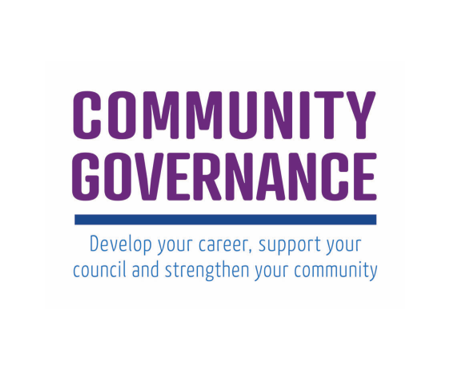
Course Description
Certificate in Local Council Administration (CiLCA) is a Level 3 accredited and recognised qualification for the Local Council Sector, designed to test basic levels of competence for the role of parish clerk. CiLCA has been designed to cover all aspects of the clerk's role and learners are required to compile a portfolio of evidence to show they fully understand their job.
There are 30 Learning Outcomes within the 5 units covering the following topics:
-
Core roles in local council administration
-
Law and procedure for local councils
-
Finance for local councils
-
Management for local councils
-
Community Engagement
Who Benefits From CiLCA?
The Council, the Clerk and your community.
CiLCA is vital criteria for a council wishing to achieve the Local Council Award Scheme status and for the Council to claim General Power of Competence.
A CiLCA qualified Clerk is an efficient and effective Clerk, which can lead to a boost in confidence and competence.
Who Can Apply?
Anyone can undertake the Certificate in Local Council Administration. Although it is has been designed for parish and town clerks, it can be undertaken by assistant clerks, aspiring clerks, councillors or any other person interested in local council administration.
It is recommended you have been in post a minimum of 12 months to gain the knowledge required for the role and the qualification. Ascentis, the awarding body, recommends that you attend training to assist you in completing your qualification.
NB: if you're not a clerk, it would be helpful if you were working for or have close links with a parish or town council, as you will need access to documents for your portfolio.
How much does it cost?
The cost for the CiLCA training course is £545+VAT per member learner, £1090+vat per non member learner payable to Northants CALC.
An additional registration fee of £450 (non-vatable)* is payable to the SLCC.
*Fees usually increase annually. Prices correct at 4 October 2023.
What's involved?
CiLCA Training consists of 7 sessions at 3 hours totalling 21 hours of training delivered across 8 months.
Each session will cover Learning Outcomes within the Units of CiLCA. You will need to ensure you are available to attend each session.
Having attended each session, you then start to compile your portfolio of evidence. It is highly recommended to build your portfolio alongside the training.
Once you have attended all sessions, you will have completed the CiLCA training and you now finalise your portfolio ready for submission.
How can my Council help?
Whether you work 15 hours a week or 15 hours a month the time required to complete CiLCA will be the same. It is highly recommended to get your Council's support to complete this qualification.
As a good employer the Council should:
- Provide and protect study time
- Manage your workload
- Show an interest in your progress
- Listen to your advice
When your sign up for CiLCA training you will be given a Learning Agreement to be signed by the Learner, The Council and NCALC which will set our what is required and expected.
How long does it take to complete?
CiLCA Training consists of 7 sessions at 3 hours totalling 21 hours of training delivered across 8 months.
You have 12 months to submit your portfolio once you are registered for EMMA. It is recommended that you submit one unit at a time. It can take up to 2-6 weeks for assessors mark your work and give feedback.
CiLCA Registration
After you've attended training, you will apply and pay the registration fee via the SLCC website.
You do not need to be an SLCC member but you will need a log in to the SLCC website in order to apply. You can apply on the website at anytime however, registrations on the EMMA system are bi-monthly.
IMPORTANT Payment for CiLCA must be received by the intake date for the learner to be set up on EMMA. If payment is not received by the intake date then the learner will not be set up on EMMA until the following intake.
CiLCA Intake dates: 1 February | 1 April | 1 June | 1 August | 1 October | 1 December
Learners will still have year to complete their CiLCA qualification starting from the date of registration on EMMA.
What is EMMA?
EMMA is the platform you will submit your portfolio to. Watch this video for more information.
What learner support will there be?
- Time will be built into each session to discuss and share completed learning outcomes.
- During the period of the CiLCA training, learners can make use of support from the trainer.
- Access to monthly CiLCA Focus Sessions
- If learners require additional support throughout the training period, additional hours can be booked with the trainer; at a cost of £30 per hour
- Following completion of the CiLCA training the trainer will offer a Portfolio Review, lasting between 2-3 hours. This review must be completed no later than 3 months after the completion of CiLCA training. The cost of this review is included in the course fee.
- If the learner requires support beyond this 3 month period, this will be available via the SLCC CiLCA Mentoring Service. Individual circumstances
When should I do CiLCA?
Most councils are going to want their clerk to gain CiLCA as soon as possible, but doing it too soon in your new role can be setting yourself up to fail.
The SLCC recommend a minimum of 2 year’s experience before doing CiLCA. But this largely depends on the individual and their role. A full time clerk is more likely to gain the knowledge of the role quicker than compared with a clerk who works 5 hours a week.
Someone confident with academic studies is more likely to want to complete CiLCA sooner than someone who doesn’t particularly enjoy academic studies.
Your personal life will also affect your ability to complete CiLCA. If you have very little “spare time” this is likely to hinder your studies compared with someone who has a lot of free time.
Everyone is different, if you’re not sure contact mreilly@northantscalc.com to discuss this further.
Am I ready to register?
You are required to complete the CiLCA Training Needs Analysis. Please complete CiLCA Training Needs Analysis link below. We will then contact you to discuss. discuss.

